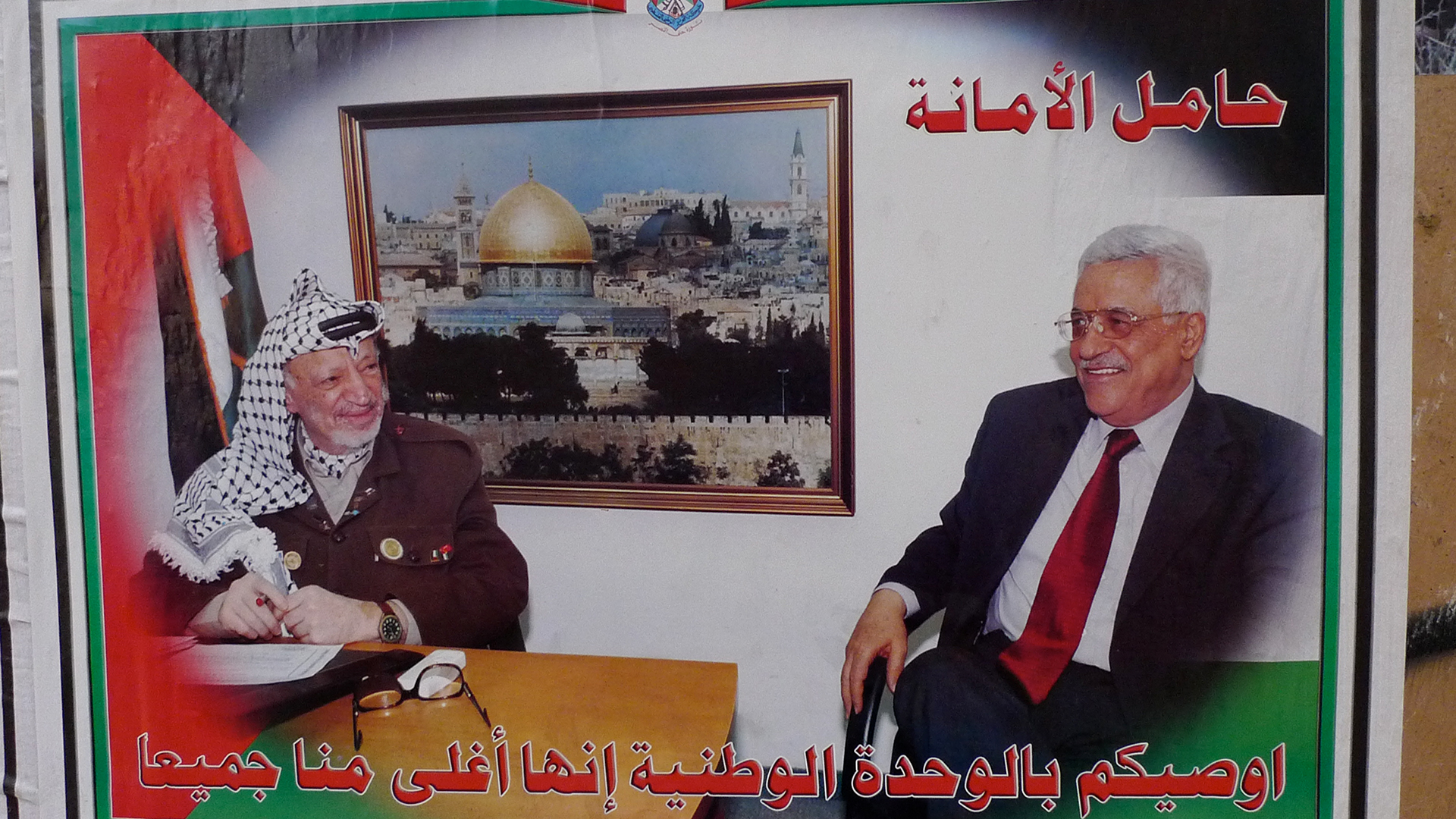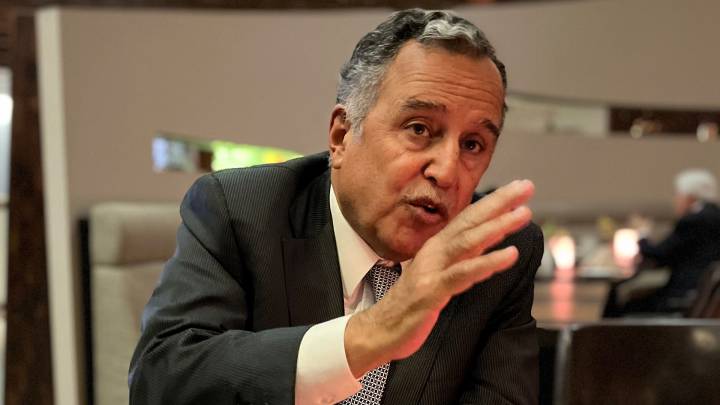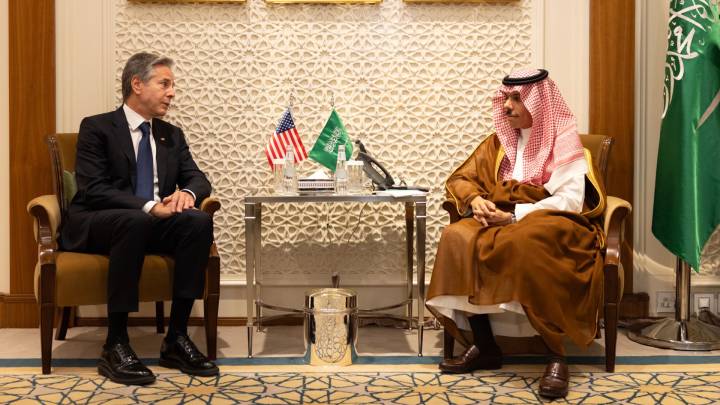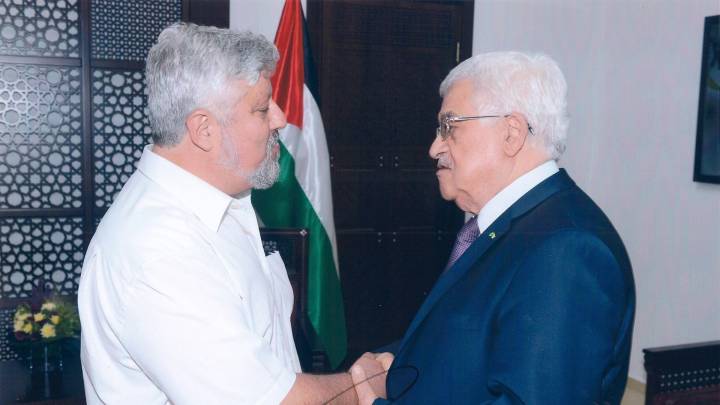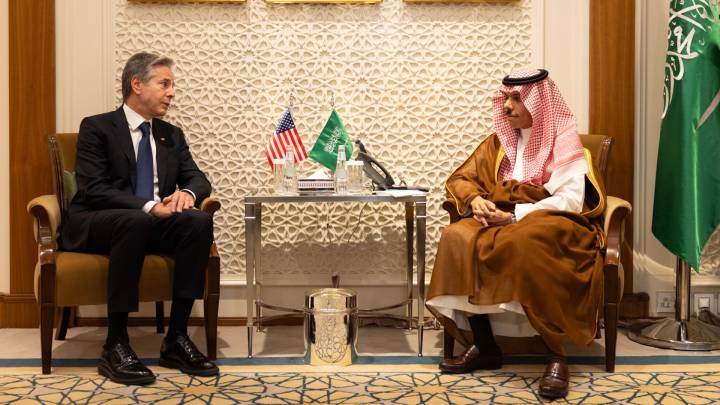What happened to all of last year’s talk surrounding a possible election date in Palestine? One its most fervent cheerleaders was the EU, but their ongoing securitised agenda in Palestine means that elections do not equate to democracy.
In late September last year, Mahmoud Abbas stood before the UN General Assembly and announced that upon his return to Ramallah he would "announce a date for the holding of general elections in Palestine." His declaration in New York sparked a flurry of punditry speculating on who would succeed the 84-year-old president of the Palestinian Authority, a body that nominally only enjoys autonomy over 17.7% of the occupied Palestinian territories (oPt) known as Area A, with the rest either being under joint or direct Israeli control.
A month prior Abbas had been in Berlin to meet the German chancellor Angela Merkel, who spelt out the country’s policy priorities regarding Palestine: “good governance, democratic legitimisation of existing institutions and the strengthening of civil society.” The timing of the two announcements was no coincidence. Perhaps demonstrating that the election speculation was more European rather than Palestinian in design.
A decade and a half ago Merkel found herself on a visit to Abbas in Ramallah. It was 29 January 2006, just four days after legislative elections had been held in Palestine, in which the Islamic resistance movement better known as Hamas had claimed victory over Abbas’ party Fatah. Merkel announced that EU aid to the PA was contingent on Hamas’ recognition of Israel, a position which was reiterated by Germany’s foreign minister at the time, Frank-Walter Steinmeier, a couple of weeks later when he too visited the West Bank.
Direct foreign aid to the PA was eventually suspended following the formation of a Hamas-led PA government in March, but the EU continued to support Abbas and his security services under the so-called Temporary International Mechanism. Fighting between the two factions in June 2007 resulted in Hamas taking over a besieged Gaza, while Fatah under Abbas resumed its grip over the West Bank and the PA more widely. Subsequently, Germany has become the PA’s largest bilateral donor, especially since the USA pulled the plug on millions of dollars of aid to the PA and UNWRA, including $60 million in security aid annually.
The fact that President Abbas has ruled by decree since his mandate expired in 2009 is deeply embarrassing for officials in Berlin and Brussels.
The fact that President Abbas has ruled by decree since his mandate expired in 2009 is deeply embarrassing for officials in Berlin and Brussels. His actions since then have only compounded that feeling. In April 2016 Abbas created the Palestinian Supreme Constitutional Court, which he packed with Fatah loyalists. Nathan Brown, professor of political science at George Washington University, told zenith that this move especially constituted “a very transparent attempt by the president to take the remaining national structures and Palestinian life and exert control over them.”
In January 2019 the SCC validated Abbas’ presidential decree to dissolve the Palestinian Legislative Council (PLC), nearly a third of which has spent time in Israeli prisons. This measure removed Aziz Dweik, the PLC’s speaker, from his constitutional position as next in line to presidency. Human Rights Watch claimed that the PA’s violations of freedom of expression reached a historic peak when the new Palestinian cybercrime law was introduced in 2017, again by presidential decree. In October 2019, the law was used by Ramallah Magistrate Court to order 59 Palestinian websites to be blocked, 25 of which were news outlets.
In the same period the increasingly authoritarian president has dangled the bauble of elections before the EU. Yara Hawari, Senior Palestine Policy Fellow of Al-Shabaka, told zenith that by hinting at elections in September Abbas was “simply paying lip service to the various voices calling for democratisation in the West Bank and Gaza,” By floating the idea periodically, as well as claiming he would not stand in future elections, Abbas provides the EU with a thin veneer of democratic legitimacy for their ongoing support of him.
And yet such illusions did not come to fruition. Abbas has never issued a decree setting an exact date for elections. The list of well-rehearsed excuses includes Israeli elections, the issue of East Jerusalem and the intransigence of Hamas. And in the unlikely event that elections were held, Rahwi Fattouh, senior Fatah member and former interim PA president, told zenith that his party would field no candidate other than Abbas. Hawari commented, when asked what mechanism could see Abbas replaced: “authoritarian rulers tend to stay in power until they pass away.”
Meanwhile, Germany in its capacity as a leading EU member has welcomed Abbas’ election calls while embarking on an agenda which renders a wider pluralistic manifestation of democracy in Palestine all but impossible. Across the country stricter measures have been taken to tackle the Boycott, Divestment and Sanctions (BDS) movement, including the banning Palestinian activists Rasmea Odeh and Khaled Barakat from speaking at events in Berlin in 2019.
According to a recent poll, 62% of Palestinians want Abbas to resign.
This approach to dissenting voices is mirrored in the EU’s commitment to security sector reform (SSR) in the oPt. According to the German Foreign Office, SSR “seeks to improve security for civilian populations and to enhance people's well-being” through supporting partner countries’ security institutions which “should be firmly embedded in democratic political institutions viewed by the people as legitimate.” The unelected government of the PA led by Abbas, who, in a recent poll carried out by the Palestinian Center for Policy and Survey Research (PCPSR), 62% of Palestinians wanted to resign, can hardly be considered legitimate.
Alaa Tartir, visiting professor at Sciences Po, however, has argued that post-2007, the EU’s agenda of security sector reform “has thwarted Palestinians’ national struggle, their resistance movement and their everyday security,” and has therefore concluded, that SSR “has strengthened the foundations of Palestinian authoritarianism.” In June 2008, Berlin hosted a conference of world leaders “in support of Palestinian civil security and the rule of law”, in which Germany committed €15 million of the €156 million. This made Germany the biggest single annual donor to the programme besides the EU itself, who contributed €35.4 million. In fact, a significant percentage of the over $30 billon given in aid to the PA has been invested in SSR.
The Palestinian security sector now employs around half of all of the PA’s civil servants, over 80,000 and the PA spends a third of its budget maintaining the sector, around $1 billion. Abbas’ 2005 election promise of “one law, one gun, one authority” has resulted in weapons in the hands of more security personnel than ever before. As Dana El Kurd, an assistant professor at the Doha Institute for Graduate Studies, highlights in a recent book, East Germany, often held aloft as the stereotypical police state, at one stage employed one informant per 66 citizens whereas the PA has one security officer for every 48 Palestinians, one of the highest rations in the world.
The EU Coordinating Office for Palestinian Police Support (EUPOL COPPS) was born out of a 2005 UK Department for International Development (DFID) report on SSR in Palestine. The EU mission defines its objective as “to improve the safety and security of the Palestinian people” – as of July 2019 it has an operating budget of around 12.5 million EUR. EUPOL COPPS focuses on what it describes as the professionalisation and, to an extent, the legitimisation of the Palestinian Civil Police (PCP), which is tasked with maintaining law and order and ensuring public security in the fraction of the West Bank that the PA directly administers. This professionalisation effort is pursuing principally through training, including the unveiling of the $15 million Palestine College of Police Sciences in Jericho.
In March 2020 police advisors from several EU member states conducted a workshop in Nablus for SPF officers in responding “to mass events such as riots, demonstrations and sporting fixtures.”
Although it ostensibly reports to the PA’s Ministry of Interior, currently part of Prime Minister Mohammed Shtayyeh’s portfolio, the PCP has been deepening its coordination with their Israeli counterparts. The head of the PCP, Hazem Atallah, who was appointed by Abbas in 2008, has confirmed that despite many threats to cut security coordination between his organisation and Israel such coordination has always continued.
In fact, the relationship is said to be deepening and there have been reports that Palestinian police officers were deployed at the request of the Israelis to guard Israeli settlements, which are illegal under international law. A police spokesperson denied this report. However, the extent of Israeli control over EUPOL COPPS is undeniable. Henrik Malmquist, the Swedish police officer who headed the mission from 2010 to 2012, has stated that “any equipment we bring in has to be approved by the Coordinator of Government Activities in the Territories,” which falls under the authority of the Israeli Ministry of Defence.
EUPOL COPPS has also focused on the training of a riot control unit within the PCP known as the Palestinian Special Police Force (SPF). In March 2020 police advisors from several EU member states conducted a workshop in Nablus for SPF officers in responding “to mass events such as riots, demonstrations and sporting fixtures.” This is one of many such workshops that EUPOL COPPS has convened for the SPF as well as numerous trips to Spain and most recently Portugal to train with their police counterparts and providing vehicles to help with crowd control.
Members of the SPF have also received training at King Abdullah II Special Operations Training Centre (KASOTC) in Amman. The SPF, alongside other PA security forces which do receive training from EUPOL COPPS, have employed their new-acquired tactics at many instances, most recently when demonstrators gathered in central Ramallah to protest against the PA’s sanctions against Gaza.
Beyond police training, EUPOL COPPS works with the PA’s Ministry of Justice to draft security sector legislation. Legislation which can never be scrutinised due the current non-operation of the PLC. The mission also trains judges and lawyers in several aspects of legal administration, including cybercrime. In 2013 three Palestinian lawyers travelled to the Academy of European Law (ERA) in the southwestern German city of Trier where they participated in “a basic training course on legal and technical aspects on cybercrime.” These efforts have only continued with Palestinian judges attending a EUPOL COPPS-run workshop on cryptocurrencies and cybercrime in February 2020, despite the reservations raised by international human rights organisations about how cybercrime is addressed by the PA.
Many of Abbas’ potential successors would likely hail from the security establishment.
EUPOL COPPS has also been involving in the PA’s penitentiary system. In a 2008 EUPOL COPPS report it was asserted that “Palestine does not have Western style prisons” and the PA proposal at the Berlin Conference was to build seven new prisons in Jericho, Jenin, Hebron, Nablus and three others in Gaza at a cost of nearly $28 million, as well as a further ten detention centres. It argued that such prisons were necessary “to show to Israel and the International Community that they are serious about security.”
In September 2011 the EUPOL COPPS announced that the PCP had just opened “a modern Correction and Rehabilitation Centre” in Jericho, which can house over 150 inmates, as part of a $6 million project funded by the Netherlands. The prison staff are trained in the central academy in Jericho as well as in Jordan and Egypt, neither of which have an untarnished track record when it comes to treating prisoners humanely. The facility is run by the Palestinian Correction and Rehabilitation Centre Department (CRCD), which falls under the authority of the PCP.
EUPOL COPPS is building carceral capacity for a government, which, as Human Rights Watch (HRW) has documented, is responsible for a host of abuses in their prisons including torture. HRW’s October 2018 report found that the PA, as well as Hamas, had been “systematically” rounding up opposition figures, journalists and critics, as well as clamping down on protests. The Ramallah-based human rights organisation, Al-Haq, found nearly 200 cases of arbitrary detention in 2019, with the PA’s Preventative Security (PPS) being one of the main culprits.
Former presidential hopeful Mustafa Barghouti told zenith that he condemned all acts of torture and said: “all security structures should be subjected to the control of the elected political structure. “It is important to note that neither the PPS nor their detention facilities receive direct support from EUPOL COPPS specifically or the EU more generally. Yet by supporting the PCP, the EU are indirectly legitimising the policies and actions of Abbas and the PPS.
And there is another political consequence of this support. As Tahani Mustafa, a researcher at the London School of Economics, indicates, prevailing common sense of SSR sees many of Abbas’ potential successors coming from the security establishment where they head personalised “oligopolies of violence” rather than a single PA-wide monopoly on violence. Whether that is long-time PPS head and much mythologised Mohammed Dahlan, his successor Jibril Rajoub, or the head of the PA’s General Intelligence, Majid Faraj. In November 2019, the new PA prime minister, Mohammed Shtayyeh, keenly embraced SSR when he was photographed cutting the ribbon at the opening of the €11 million Jenin Muqata'a, one of many security compounds which was reconstructed thanks to EU investment. Therefore, whether Abbas continues in his current role or not, and regardless of elections, the PA looks set to remain under the stewardship of SSR true believers for the foreseeable future.
The same day that Abbas stood before the UN, thousands of women took to the streets in a ‘day of action’ across Palestine, and among the diaspora communities, including those in Berlin, to reclaim the political process from those ossifying patriarchy that defines the PA. This new feminist movement, the name of which is a play on the feminine plural form of the Arabic participle tal’at or rising up, was born in direct response to the murder of 21-year-old Israa Gharib, a Palestinian make-up artist from the town of Beit Sahour, at the hands of family members in August last year.
Seeking no change with the governing structure of the PA, Tal’at defines its position as seeking “a new definition of national liberation in Palestine” under the slogan “There is no free homeland without free women.” The movement is also critical of the Oslo process which gave birth to the PA in 1994 and contributed to the narrowing of the Palestinian political imaginary, something that the Palestinian Liberation Organisation (PLO) used to claim ownership of.
It would simply be wrong to equate any talk of election from either PA or EU officials as a sincere commitment to democracy in the occupied Palestinian Territories.
EUPOL COPPS have also recognised the importance of tackling this issue claiming that “countering gender-based violence is one of the fields in which the Mission advises its Palestinian partners.” This advice culminated in the formation of a gender unit within the PCP, headed by Wafaa Alhussien, to promote gender equality. However, the current head of mission, has recently admitted that only 5% of those who work in Palestine’s security sector are women. The gravity of the issue is undeniable with the UN reporting that 29% of Palestinian women had suffered some form of abuse at the hands of their husbands in the past 12 months.
EUPOL COPPS, unlike Tal’at, decouples their technocratic approach to the issue from the reality on the ground; the ongoing and deepening Israeli occupation of Palestine. In a recent article, two of Tal’at’s members, Hala Marshood and Riya Alsanah, state that both the PA and Israeli police forces “form part of a colonial structure that engages with Palestinians as subjects that are to be surveilled and controlled.” In fact, PCP can be seen doing just that, surveilling in the background of a video of one of Tal’at’s recent demonstrations in Ramallah. In its efforts to de-politicise women’s rights, EUPOL COPPS seems oblivious to the idea that the Israeli occupation is one of the biggest contributing factors to gender-based violence and femicide in the oPt.
While both Abbas and Merkel speak of elections, it would simply be wrong to equate any talk of election from either PA or EU officials as a sincere commitment to democracy in the occupied Palestinian Territories. While there is no democratic basis for the ongoing Israeli occupation, elections do not represent the totality of democratic expression taking place on a daily basis within the Palestinian territories either. Any freedom of expression is under increasing attack by the Abbas-led and internationally aided PA.
"The EU's efforts are relatively expensive for not making sense," sums up Nathan Brown on security sector reform and other EU support for the PA. However, by promoting the professionalisation of the police, the EU continues to encourage Israel to outsource security requirements to the PA's armed forces. Dana El Kurd concludes in her study that the internationally supported capacity building of the PA's repressive apparatus, combined with the co-optation of independent democratic initiatives, has begun to "undermine the democratic foundations of Palestinian society."
